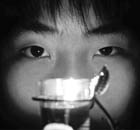Tianjin
Life on the go keeps TV host Na Wei moving forward
By Li Jing (China Daily)
Updated: 2010-03-18 07:55
 |
Large Medium Small |
METRO: How many regular programs do you have?
A: Five. Three of them are produced by my own team, including a food program Naxiaozui on the Travel Channel, a job-seeking advice program China Opportunity on CETV1, and a law program on Mobile TV. I also serve as host in programs run by Tianjin, Fuzhou and Hebei TV stations.
METRO: When did you first get involved in TV industry?
A: It was back in 1996. I was an instructor for a renju program on CCTV. As a promoter of a renju game in Beijing, I suggested introducing the program on CCTV and I was chosen to be the host.
METRO: Which program made you famous?
A: A free talk show Shuoba (Talk Bar). I was probably the first Chinese host to do such a show. I discovered the model when I stayed in Canada and saw the Late Show with David Letterman, and found it not only a good way to study English but also a good program.
In 2001, I made a similar show myself where I stared into the camera and told short jokes in the scene of a bar. Some stories were learnt from the Reader's Digest. But most of the stories were original - things from my daily life.
It was not well received at first and some mainland TV stations refused to broadcast it because of its strange form. Only Phoenix TV had an interest in it. But it proved to be a success.
The program lasted for a year until the appearance of short jokes for phones. We published a book with all the original short stories in the program.
METRO: As an independent producer, what makes your program marketable?
A: I try to employ a fresh approach in the programs. For instance, I invented a new type of food program, in which food appreciation is like appreciating antiques. I'm not a chef or a gourmet. I don't know how to cook. My best dish is tomato fried egg and grilled eggplant.
Instead, I talked about the stories behind the food. For example, I would say that Beijing noodles originated in Tong Zhou, which, although now a suburb, was originally outside the city.
METRO: How do you find these new approaches?
A: I learn from others. Many people around me are smarter than me. They are among the best in their industries, people such as Ying Da and Chen Peisi. When they talk, I always listen to them carefully and try to take inspiration from them.
I believe we can get something from everything, even parking cars, going to the park or taking a flight. I would ask them why they did it this way rather than another.
METRO: How do you relax?
A: I play strategy games, like Starcraft. I prefer defense to attack. I also like to read military magazines. Topics such as how to defend a town, or how to plan a war interest me.
METRO: What's your plan for the future?
A: My next step is to be a famous actor. It is not for the fame, I want others to recognize my acting talent. I also want to be a teacher somewhere down the line, as I'm intuitive and good at telling stories.
METRO: What would be your ideal life?
A: A simple kind of life, living in an apartment of 20 to 30 sqm, drinking beer and eating won ton. It is a life where everything is under my control.
METRO: Have you thought of retirement?
A: I haven't thought about it so far. I may work until I can't move or until I get a big fortune overnight. I've tried the lottery several times, but I know I do not have that kind of luck and now I don't bother.
The money I have now has been earned through hard work every step of my life, so there is no end to it and I dare not relax at any time.
China Daily
(China Daily 03/18/2010 page38)







